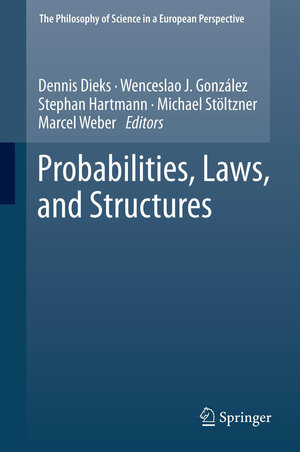
×
![Buchcover ISBN 9789400799660]()
Probabilities, Laws, and Structures
herausgegeben von Dennis Dieks, Wenceslao J. Gonzalez, Stephan Hartmann, Michael Stöltzner und Marcel WeberThis volume, the third in this Springer series, contains selected papers from the four workshops organized by the ESF Research Networking Programme „The Philosophy of Science in a European Perspective“ (PSE) in 2010:
The volume is accordingly divided in four sections, each of them containing papers coming from the workshop focussing on one of these themes. While the programme's core topic for the year 2010 was probability and statistics, the organizers of the workshops embraced the opportunity of building bridges to more or less closely connected issues in general philosophy of science, philosophy of physics and philosophy of the special sciences. However, papers that analyze the concept of probability for various philosophical purposes are clearly a major theme in this volume, as it was in the previous volumes of the same series. This reflects the impressive productivity of probabilistic approaches in the philosophy of science, which form an important part of what has become known as formal epistemology - although, of course, there are non-probabilistic approaches in formal epistemology as well. It is probably fair to say that Europe has been particularly strong in this area of philosophy in recent years.
The volume is accordingly divided in four sections, each of them containing papers coming from the workshop focussing on one of these themes. While the programme's core topic for the year 2010 was probability and statistics, the organizers of the workshops embraced the opportunity of building bridges to more or less closely connected issues in general philosophy of science, philosophy of physics and philosophy of the special sciences. However, papers that analyze the concept of probability for various philosophical purposes are clearly a major theme in this volume, as it was in the previous volumes of the same series. This reflects the impressive productivity of probabilistic approaches in the philosophy of science, which form an important part of what has become known as formal epistemology - although, of course, there are non-probabilistic approaches in formal epistemology as well. It is probably fair to say that Europe has been particularly strong in this area of philosophy in recent years.



